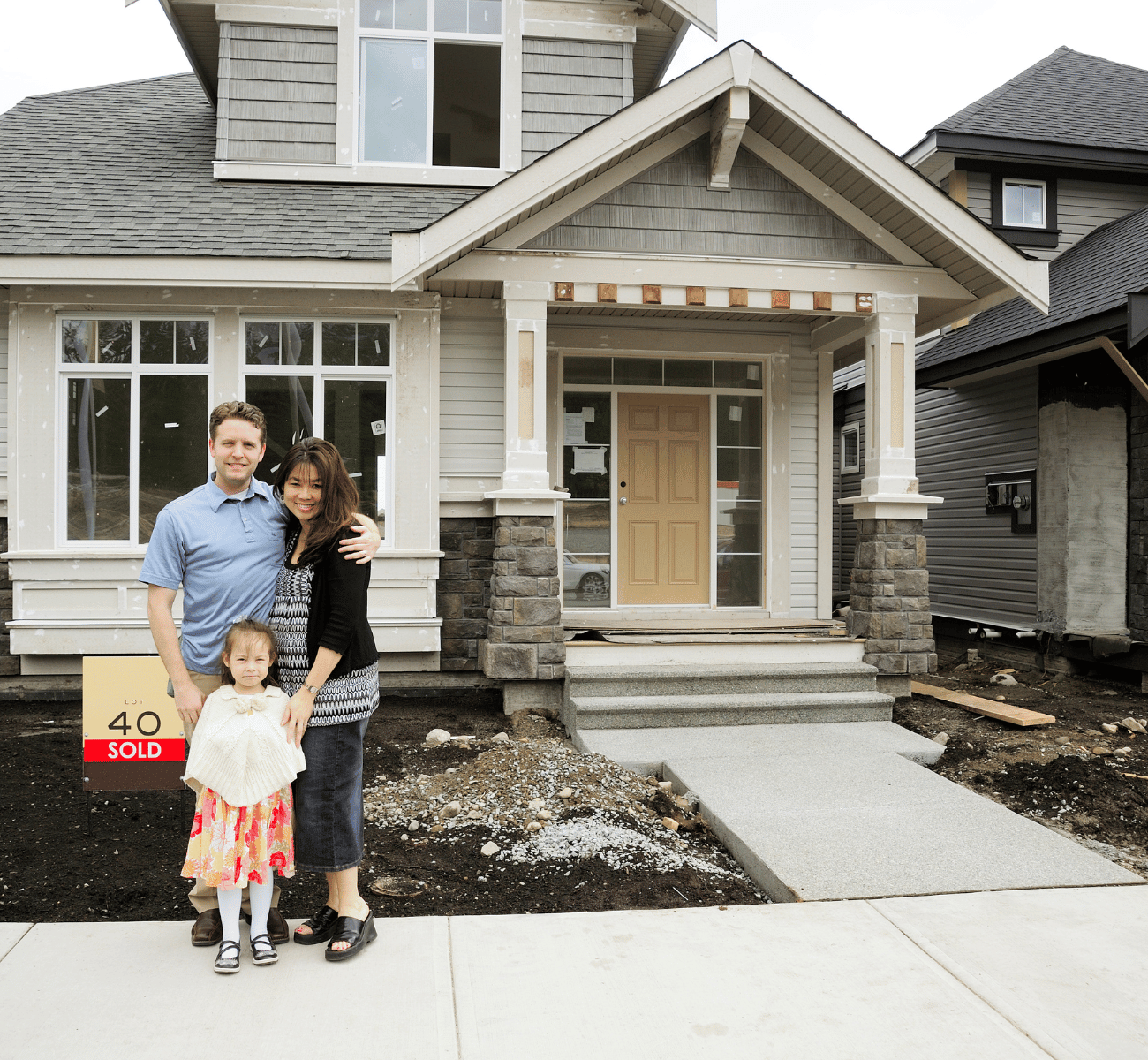Real Estate Buyer Fears and Phobias
What are the most common fears of homebuyers? Here are ten typical fears and phobias felt by real estate buyers and how to deal with overcoming them.
It is expected to feel fear when buying a home. Often considered the most significant financial decision a person can make, buying a home is a huge life event bound to make someone anxious about their purchasing decision.
Whether you are a first-time homebuyer or a repeat buyer, over half of Americans feel anxious about purchasing a home since it is a daunting process and a considerable commitment. Purchasing a home is often thought of as a milestone by many and is widely considered a key part of living the American dream.
Homeownership offers the stability and flexibility most people seek, and 84% of consumers say they want to own a home. But even though the thought of owning a home is exciting, it is also natural to experience some fear since this decision will impact your entire life and family.
From financial concerns to the fear of dealing with unforeseen issues with a property, let's discuss common fears and phobias associated with purchasing a home and how to combat these fears as a new homeowner.
Check out these natural fears commonly felt by homebuyers
1. Fear of Commitment
One of the most common fears people feel when buying a house is the fear of commitment. Considered a relatively common fear in relationships and significant life decisions, the fear of commitment arises when people worry about being "locked in" to a decision that they made.
This is a prevalent feeling among first-time homebuyers. Many people have this fear since buying a home means being tied down to a long-term mortgage and a specific location for an extended period.
Committing to a home also means a lifestyle change, which can lead to unhappiness, dissatisfaction, and doubt when the homeowner is not completly excited about the purchase.
To combat this fear, it is essential to understand it and realize that you are not the only home buyer feeling this way. Talk with your loved ones and recognize that even though you buy a home, you do not have to live there forever.
If you realize that purchasing a home is too much of a commitment, consider renting it and buying it later once you are ready to commit to a house and location.

2. Fear of Financial Instability
Financial fears made up four of the top five fears that first-time homebuyers experience. Many buyers worry that they will not be able to afford the mortgage of a new home or are nervous about examining their finances to assess whether or not they can afford to buy or will get approved based on their credit score or debt-to-income ratio.
Even repeat homebuyers experience the stress associated with financial instability since buying a home is considered the largest purchase most people make in their lifetime. Getting approved for a mortgage is one of the first steps in the home-buying process and will give homebuyers a clear idea of what type of house they can afford.
It is always a good idea to set a realistic budget and have a financial plan before proceeding with the home-buying process. Taking on significant debt is never a good idea, so identify and understand all potential costs upfront before considering buying a home.
3. Fear of Overpaying
When potential homebuyers consider purchasing a property, they often fear overpaying. They worry they might be paying significantly more than the actual market value. This is especially true in a competitive housing market with limited inventory since buyers often face pressure to offer above the asking price in a bidding war.
Since buying a home is a significant financial decision, this fear often leads to hesitation and indecision, leading to a potential buyer missing out on a dream property. It is essential to recognize that negotiation and compromise are standard during buying. Working with an experienced and knowledgeable real estate agent can guide you through the process and help you negotiate the best price.

4. Fear of Missing Out
The fear of missing out is often called FOMO. Regarding real estate, this usually refers to potential homeowners feeling anxiety over not purchasing a property when others are. Homebuyers might also miss out on finding nicer homes and better deals in a particular area.
Often occurring in a seller's market when there is lots of competition and bidding wars, this could lead buyers to make a fast decision without fully considering all the options. In this day and age, it is easy to feel the need to compare oneself with friends and family and make a financial decision that might not be the best at the time.
To manage the fear of missing out, set a realistic budget and stick with it to avoid purchasing a house above your means. Always prioritize needs over wants and focus on requirements for your dream home rather than going after the next best thing.
5. Fear of Bad Neighborhood
Location is one of the most important things to consider before purchasing a property. A home can look beautiful on the outside, but if it is located in a bad neighborhood, property value can be impacted, and safety could be a constant concern for homeowners, especially families.
Potential homebuyers should always consider crime rates since most people do not want to live in a notoriously unsafe neighborhood with disruptive neighbors. The feel of a community and overall safety in a neighborhood should always be considered when searching for homes for sale, not just the features and aesthetics of a home.
The best way to avoid purchasing a home in a bad neighborhood is to conduct thorough research, check local crime rates, walk through the neighborhood yourself, talk to locals, and read online forums and social media pages.

6. Fear of the Unknown
Fearing the unknown and what the future may bring is a common fear, especially among homebuyers. Purchasing a property is a huge commitment; most of the time, it means staying in one place for a prolonged period. In America, the average length of homeownership is eight years, but 35% live in their homes for 10 to 15 years.
Not knowing where you want to live and feeling general anxiety about unpredictable situations or events that may arise in the future may cause someone to delay homeownership. To help manage this fear, do not hesitate to ask questions and realize that homeownership does not have to mean forever.
7. Fear of Bidding Wars
A bidding war happens when multiple potential buyers want to purchase the same property and compete for ownership by incrementally increasing their offers. Bidding wars are common in a competitive housing market and can often lead to buyers bidding too much money, which they may later regret if it's outside of their price range or if the market's condition changes at a later date.
Bidding wars are very stressful. Many buyers panic and can bid higher than initially planned. Sometimes, bidding wars can lead to buyer remorse and financial stress if not planned.
If potential buyers feel anxious about entering a possible bidding war, they should be prepared to walk away and be willing to look for properties in different neighborhoods where competition might not be as high.
8. Fear of Appraisal Process
A home appraisal is a professional opinion of a home's value, and it is required during the buying, selling, or refinancing process. Appraisals determine the maximum loan amount a lender will provide.
Some homeowners might feel worried during the appraisal process if the appraisal value is lower than expected, which can impact the buyer's ability to secure a mortgage and delay the closing process. The lower the appraisal, the more it can affect your interest rate and down payment requirements when purchasing a property.
To reduce the stress associated with the appraisal process, educate yourself on how an appraisal works and choose a reputable and qualified appraiser with a proven track record. Talk to your real estate agent and consider adding an appraisal contingency clause to your real estate purchase contract, enabling you to back out of a deal if the appraisal is lower than the agreed purchase price.

9. Fear of Hidden Problems
Homeownership is a huge responsibility, and there is always a risk when buying a property that unknown issues and hidden problems can arise. Potential homebuyers often have concerns about hidden structural problems, defects, or unexpected issues related to the foundation, plumbing, or roof that are not visible when buying.
It is common in older homes that damage can be concealed or undetected during initial home inspections and not discovered until later, once buyers have moved in, leading to unexpected and expensive repair costs. There will always be unknown factors when purchasing a property, so it is imperative to hire professionals to complete comprehensive home inspections and have savings in the bank in case unexpected costs arise.
10. Fear of Making a Wrong Decision
According to the National Association of Realtors, 40.40% of first-time homebuyers and 24.80% of repeat homebuyers fear that there might be better options than the home they are looking at. This grass is always greener mentality often leads to potential buyers feeling like they could be making the wrong decision when it comes to home buying.
Potential buyers might also feel that buying a home now might not be the best, considering it is a significant financial commitment and drastic change. The fear of making the wrong decision is also called buyer remorse and is normal.
To avoid this, thoroughly research the market, hire a trusted real estate agent, stick to your budget, do not rush the process, and clearly define your priorities when searching for your dream home.
.png)
FAQs
Is it normal to feel scared when buying a home?
Buying a home is a significant life event often accompanied by a mixture of emotions. While not every homebuyer feels scared, it is an entirely normal response to have some fear and anxiety when buying a house.
What is the most stressful part of buying a house?
Making an offer, negotiating the price with a seller, and dealing with legal paperwork are considered the most stressful parts of buying a house.
What is buyer remorse in real estate?
Buyer remorse in real estate is the feeling of disappointment and regret following a home purchase. It is estimated that 93% of recent homebuyers regret their home purchase because they spent too much money or bought too quickly.
Methodology
Data was sourced from the National Association of Realtors, Experien, Quicken Loans, Investopedia, and The Zebra to determine real estate buyers' most common fears and phobias and the best ways to combat them.
Common Fears and Phobias of Real Estate Buyers - Final Thoughts
Homebuying is very exciting, but it can also be a stressful and overwhelming experience for most people. Homebuyers can feel many fears, anxieties, and stressors. It is essential to realize that these feelings are normal and, once these fears have been identified, find ways to manage them healthily during home-buying.
Most of the time, these fears and phobias are felt because home buying is such a significant commitment financially and emotionally. With the help of the experts at Raleigh Realty, you will combat these fears in no time and only experience happiness and excitement when purchasing a property in Raleigh.



